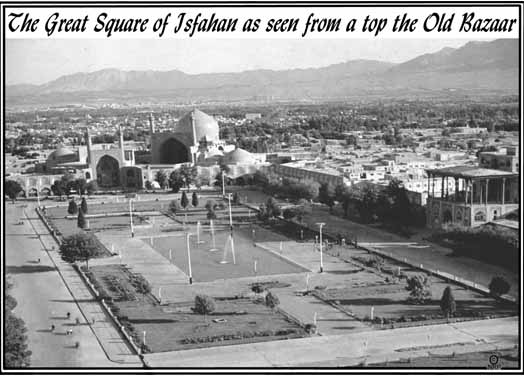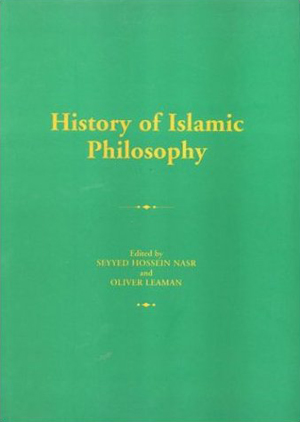
The Grand Square of Isfahan, where the School of Isfahan in Islamic philosophy emerged.
The word “mammoth” comes to mind when describing Seyyed Hossein Nasr’s and Oliver Leaman’s History of Islamic Philosophy. The work is 1211 pages, consisting of seventy-three articles, including two introductions and “a guide to bibliographical resources” by fifty-two different authorities. As one might expect of a work of this size, there is something for everyone, whether Islamicist, historian, or philosopher. The collection will certainly be a useful resource for those concerned both with Arabic philosophy specifically, as well as those interested in the general place of Arabic intellectual traditions within their philosophical context, whether historical or contemporary.
The collection is broken up into eleven general sections. The first section, “Religion, Intellectual and Cultural context,” considers the Greek, Syriac, Indian, and Persian, as well as theological background to Islamic philosophy.
Section two is “Early Islamic philosophers in the East” and includes the usual cast of characters–al-Kindi, al-Farabi, Ibn Sina, and al-Ghazzali–as well as ar-Razi (the Latin Rhazes), al-Amiri, Ikhwan as-Safa’ (the Brethren of Purity), and Ibn Miskawayh.
“Islamic Philosophers in the Western Lands of Islam” covers Ibn Masarrah, Ibn Bajjah, Ibn Tufayl, Ibn Rushd, Ibn Sabin, and Ibn Khaldun.
“Philosophy and the Mystical Tradition” is the fourth section and includes articles on such figures as Ayn al-Qudat Hamadani, Shihab al-Din Suhrawardi and the Illuminationist tradition, and Ibn Arabi and his school.
Section five is “Later Islamic Philosophy” and includes discussions of Nasir ad-Din at-Tusi, Mir Damad and the School of Isfahan, Mulla Sadra, and Shah Waliullah.
The next section is “The Jewish Philosophical Tradition in the Islamic Cultural world,” which treats Saadiah Gaon, Ibn Gabriol, Judah Halevi, Maimonides, Gersonides, as well as articles on Judaism and Sufism and Jewish Averroism.
The seventh section concerns “Philosophy and Its Parts” covering such subjects as Islamic conceptions of metaphysics, logic, epistemology, political philosophy, literature, language, science, mysticism, ethics, aesthetics, and law.
Section eight is “Later Transmission and Interpretation” with articles on medieval Christian and Jewish Europe, Modern Western philosophy and “the poetic medium.” “Islamic Philosophy in the modern Islamic world,” which comes next, concerns the current state of Islamic philosophy in various Muslim countries and areas, such as Persia, India, Pakistan, Egypt, Turkey, Southeast Asia, and the Arab world in general.
The penultimate section is “Interpretations of Islamic Philosophy in the West” treating such topics as “Orientalism,” Henry Corbin’s influence on the study of Islamic philosophy, Islamic philosophy in Russia, and an article on the very possibility of a philosophy of Islam.
The eleventh and final section consists of “A Guide to Bibliographical Resources” and “General Introductions to Islamic Philosophy.”
(From Journal of the American Oriental Society, October 2002, Jon McGinnis’ reviews of History of Islamic Philosophy)



 Columbia University
Columbia University Aljazeera
Aljazeera Middle East Eye
Middle East Eye Springer Palgrave
Springer Palgrave